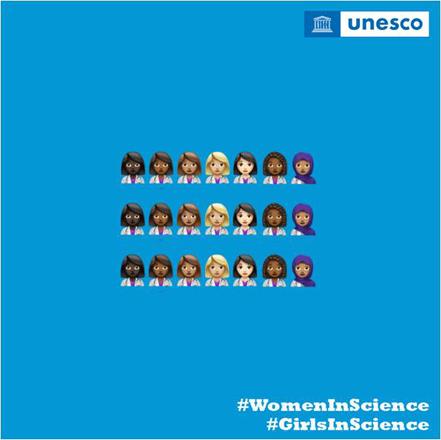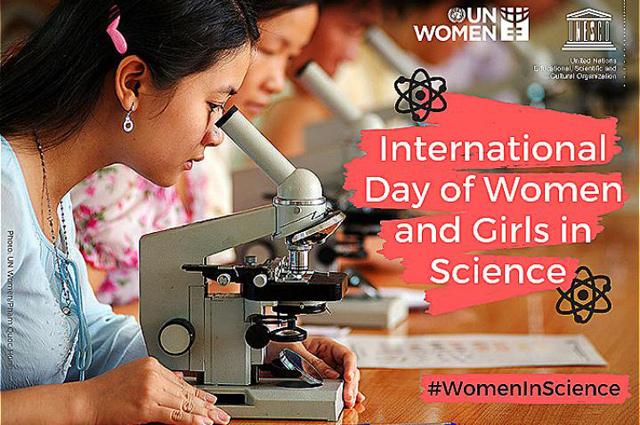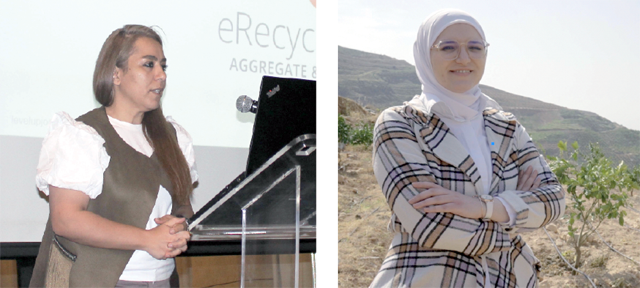You are here
UNESCO Jordan marks Int’l Day of Women, Girls in Science
By JT - Feb 12,2022 - Last updated at Feb 12,2022

Image courtesy of UNESCO
AMMAN — International Day of Women and Girls in Science was celebrated on Friday, February 11, with the aim to promote women and girl’s equal access to and participation in science fields, as well as the critical role they play in the science and technology communities as agents of change.
Gender equality is a global priority for UNESCO, and the support of young girls, their education and their full ability to make their ideas and voices heard are levers for development and peace, read a statement from the UN agency.
Globally, although more girls are in schools than ever before, women represent only 30 per cent of all students enrolled in STEM-related fields (science, technology, engineering and mathematics) in higher education, the statement noted.
The situation in Jordan is a more encouraging picture; available data suggests that more than 60 per cent of students in the natural sciences, medicine, dentistry and pharmacy are female; the figure for engineering is around 28 per cent and that for computer science around 45 per cent.
In 2020, 76.5 per cent of female students who took the Tawjihi (the General Secondary Education Certificate Examination) scientific stream exam passed compared to 65.3 per cent of male students, yet the number of male-PhD-holding academic staff and lecturers at Jordanian universities are more than twice that of their female counterparts, said the UNESCO statement.
Jordan has one of the highest numbers of female university graduates in the region, while at the same time it has one of the lowest numbers of women in the workforce.
The figures suggest that Jordan does well in encouraging girls and young women to take up science-related subjects at school and at the university level; however, there is room for improvement in their transition to the job market, according to the statement.
Globally, UNESCO is advocating for new policies, initiatives and mechanisms to support women and girls in science. To do that, it is necessary to understand the factors that deter women from pursuing careers in STEM. Among these factors are very often gender biases and social norms that influence the subject’s girls and young women study, UNESCO noted.
This gender disparity is “a serious problem”, particularly as STEM careers are very much seen as the “jobs of the future”, driving social well-being, innovation and inclusive growth, the statement said.
Scientists will play a key role in addressing the challenges of food security, climate change, clean energy, health, water and sanitation.
The world needs science and science needs women, not least in view of accelerating progress towards the achievement of the Sustainable Development Goals and it is therefore imperative that girls and women are encouraged to enter STEM education and careers, and continue in the field, the UNESCO concluded.
Related Articles
AMMAN — This year’s celebration of the International Day of Women and Girls in Science, addresses the theme “Women Scientists at the Forefro
AMMAN — Kafa Akroush is head of the Gender Unit at Jordan’s Ministry of Education (MoE).
AMMAN — While technology is rapidly advancing, potentially widening the existing digital gender gap, women and girls in Jordan choose to kee

















